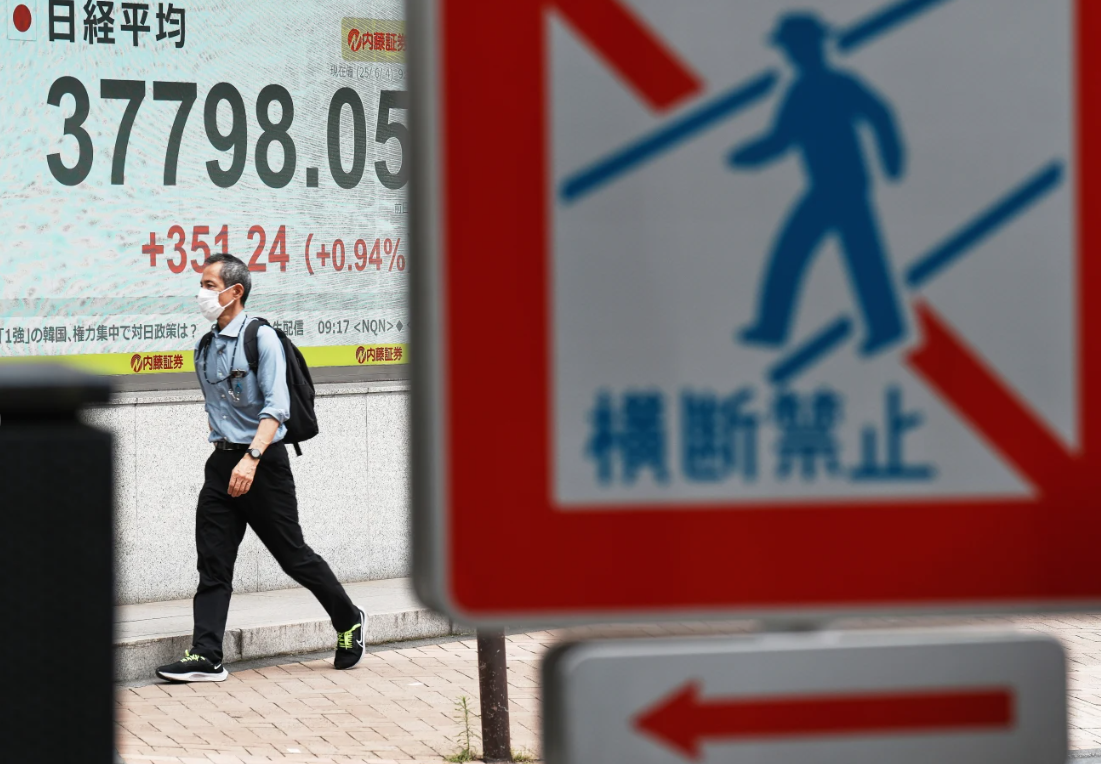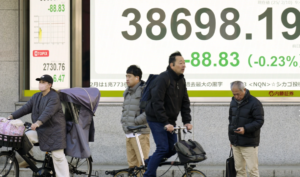Wall Street markets edged up slightly early Wednesday as President Donald Trump’s 50% tariffs on steel and aluminum imports were set to take effect, while U.S. and European trade officials met in Paris to discuss their ongoing tariff dispute.
Futures for the S&P 500, Dow Jones Industrial Average, and Nasdaq each increased by 0.2% during light pre-market trading.
On the sidelines of an Organisation for Economic Cooperation and Development meeting, the European Union’s chief trade negotiator, Maroš Šefčovič, held talks with U.S. Trade Representative Jamieson Greer. Šefčovič described the discussions as progressing well, though few expect a comprehensive trade deal in Paris due to the complexity of outstanding issues.
There was no official update early Wednesday on the status of the steel and aluminum tariffs, which are expected to impact a wide range of industries and likely lead to higher prices for consumers. Imported steel and aluminum are used in everyday products such as soup cans and paper clips, as well as larger items like stainless-steel refrigerators and automobiles. Economists warn that these tariffs could significantly increase costs for both businesses and shoppers.
Wall Street remains hopeful that President Trump will secure trade agreements with other countries that may ultimately reduce tariffs, particularly with China, the world’s second-largest economy. The U.S. administration anticipates talks with Chinese leader Xi Jinping this week.
In stock trading, Wells Fargo shares rose 2.5% following the Federal Reserve’s decision to lift restrictions on the bank, removing limits imposed in 2018 due to past misconduct. Wells Fargo has been working for years to improve its reputation and regain regulators’ trust.
Despite strong first-quarter sales and profits, Dollar Tree’s shares fell 1.8% before the opening bell after the company warned of a possible 50% drop in second-quarter earnings per share, citing rising costs from tariffs. In contrast, rival Dollar General reported record quarterly sales of $10.44 billion and raised its annual profit and sales forecasts as budget-conscious Americans increasingly turn to discount stores.
CrowdStrike, a cybersecurity firm recently sued by Delta Air Lines over a technology outage, saw its stock drop 7% after issuing lighter-than-expected second-quarter guidance.
In Europe, Germany’s DAX and France’s CAC 40 each climbed 0.7%, while Britain’s FTSE 100 increased by 0.2% at midday.
Asia saw strong gains, with South Korea’s Kospi leading the way, rising 2.7% to 2,770.84 after opposition candidate Lee Jae-myung won the presidential election. His victory follows months of political upheaval and focuses on government spending and U.S. trade talks.
Tokyo’s Nikkei 225 index rose 0.8% to 37,747.45, boosted by technology and pharmaceutical stocks.
Toyota Motor Corporation’s shares gained 1.9% after it announced a $33 billion deal to acquire Toyota Industries Corporation, a manufacturer of auto parts and lift trucks, and take it private. Toyota Industries’ shares fell nearly 12%.
Chinese markets edged higher with Hong Kong’s Hang Seng up 0.6% to 23,654.03, and Shanghai Composite rising 0.4% to 3,376.20.
Australia’s S&P/ASX 200 closed 0.9% higher at 8,541.80, while Taiwan’s Taiex increased by 2.3%.
U.S. Treasury yields remained steady after a strong jobs report on Tuesday, following a period of sharp increases driven partly by concerns over rising government debt due to tax cuts. Higher yields raise borrowing costs for households and businesses and can reduce investor appetite for expensive stocks and other assets.
In energy markets, U.S. crude oil edged up 3 cents to $63.44 per barrel, while Brent crude rose 5 cents to $65.68 per barrel.
Currency markets saw the U.S. dollar strengthen to 144.19 Japanese yen from 144, and the euro increased to $1.1386 from $1.1370.














